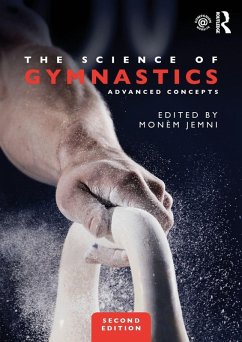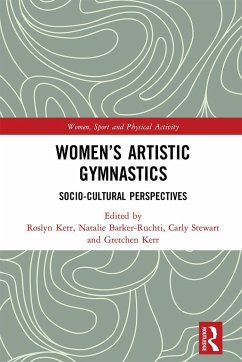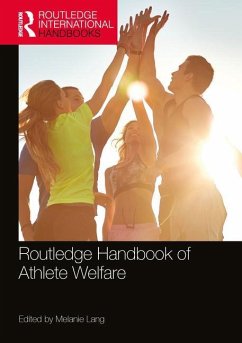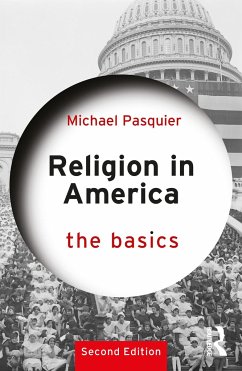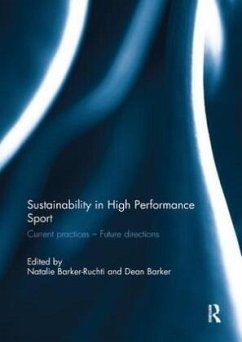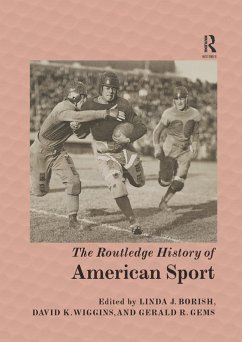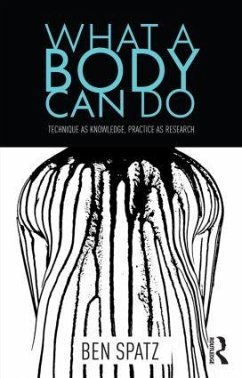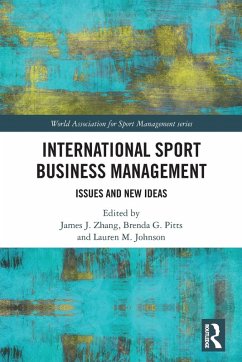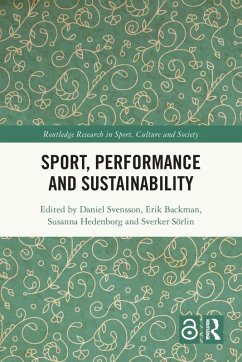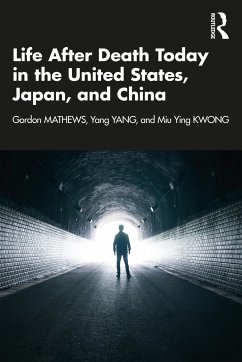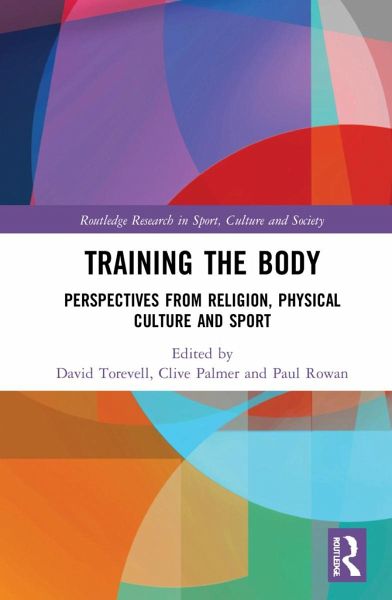
Training the Body
Perspectives from Religion, Physical Culture and Sport
Herausgegeben: Torevell, David; Palmer, Clive; Rowan, Paul
Versandkostenfrei!
Versandfertig in 6-10 Tagen
154,99 €
inkl. MwSt.

PAYBACK Punkte
77 °P sammeln!
This is the first book to examine the body in training in the context of religion, sport and wider physical culture, offering important insight into the performative, social, cultural and gendered aspects of somatic discipline and exercise.The book presents a series of fascinating thematic and case-study led chapters from around the world, examining topics including the martial discipline and symbolism of artistic gymnastics; religious interpretations of body vulnerability in the context of marathons; the religious language of corporeal training in sport and martial arts. Drawing on multi-disc...
This is the first book to examine the body in training in the context of religion, sport and wider physical culture, offering important insight into the performative, social, cultural and gendered aspects of somatic discipline and exercise.
The book presents a series of fascinating thematic and case-study led chapters from around the world, examining topics including the martial discipline and symbolism of artistic gymnastics; religious interpretations of body vulnerability in the context of marathons; the religious language of corporeal training in sport and martial arts. Drawing on multi-disciplinary perspectives, from sport, religion, history and philosophy, the book explores the often contested and sometimes over-zealous application of training in both sport and religion and the ways in which this can cause harm to athletes or adherents.
This is fascinating reading for any advanced student or researcher with an interest in the body, physical cultural studies, the ethics and philosophy of sport, the sociology of sport, religious studies, Asian studies or philosophy.
The book presents a series of fascinating thematic and case-study led chapters from around the world, examining topics including the martial discipline and symbolism of artistic gymnastics; religious interpretations of body vulnerability in the context of marathons; the religious language of corporeal training in sport and martial arts. Drawing on multi-disciplinary perspectives, from sport, religion, history and philosophy, the book explores the often contested and sometimes over-zealous application of training in both sport and religion and the ways in which this can cause harm to athletes or adherents.
This is fascinating reading for any advanced student or researcher with an interest in the body, physical cultural studies, the ethics and philosophy of sport, the sociology of sport, religious studies, Asian studies or philosophy.



